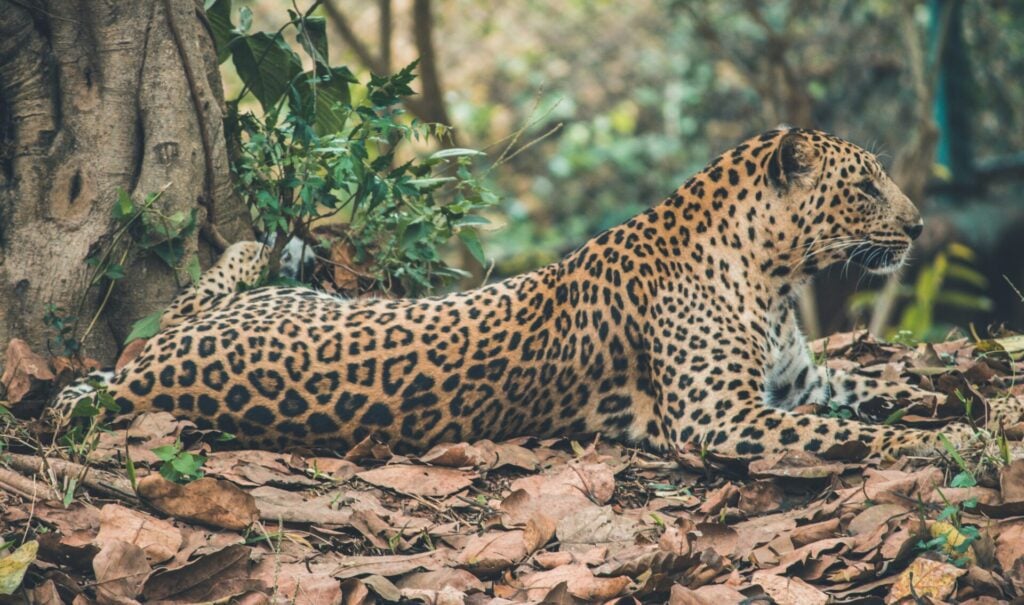A conservationist who founded an army of 10,000 women to help save critically endangered storks previously seen as a bad omen in India has been named The World Female Ranger 2022.
Purnima Devi Barman was given the pioneering award for her work with her Hargila Army to change perceptions of the Greater Adjutant Stork from a disease-carrying unlucky pest into a cultural icon in Assam. Seen as scavengers, the storks were once found across Southern Asia but their total population is now less than 1,000.
The biologist recruited the female army to help keep a strict vigil on the storks’ nests as habitat loss, poisoning and poaching for their meat to use in folk medicine are all significant threats. Purnima also built the world’s first artificial breeding platform where chicks can hatch safely to address the birds’ shrinking habitat problem.
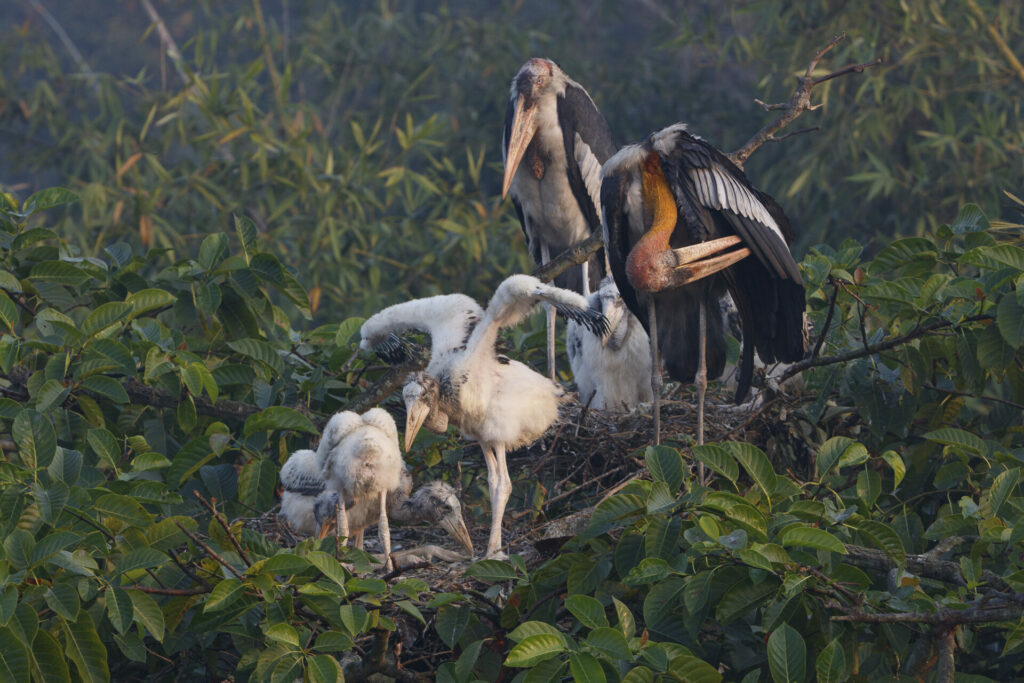
In addition, Purnima believes she has fostered a pride in the rare stork – known locally as Hargila, meaning bone-swallower – by associating positive festivities with the bird. ‘Today many women join because it is a matter of prestige to be a part of the Hargila Army,’ she says.
Purnima interrupted her PhD studies in Assam to combat the sudden decline of storks in her local area after villagers chopped down the trees on which the baby storks nested. As well as monitoring and managing the nest, she also worked to change locals’ perception of the storks from one of being a nuisance to a source of local and national pride.
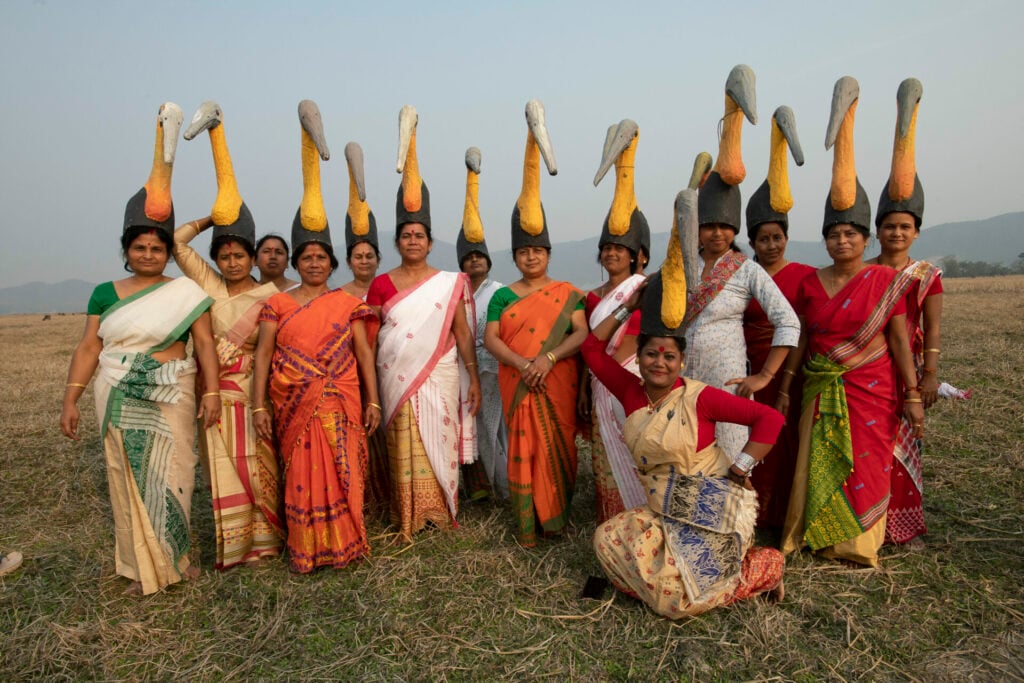
This means that her anti-poaching efforts and the successful education of potential poachers will, hopefully, ensure the long-term sustainability of conservation in the area, meaning that the numbers of storks will increase.
Holly Budge, founder of international NGO How Many Elephants, which collaborates with and supports female rangers on the front line globally launched the World Female Ranger Award last year to give international recognition to a female wildlife ranger who has shown exemplary service and commitment to conservation.
Saving Storks
‘We are delighted to give this award to Purnima, plus a grant kindly sponsored by the Globe Foundation [a non-profit organisation to reduce the impact of modern living on the climate],’ Holly tells The Ethicalist. ‘She is an inspirational woman making tangible real-world impact: protecting wildlife, uplifting communities and empowering women.’
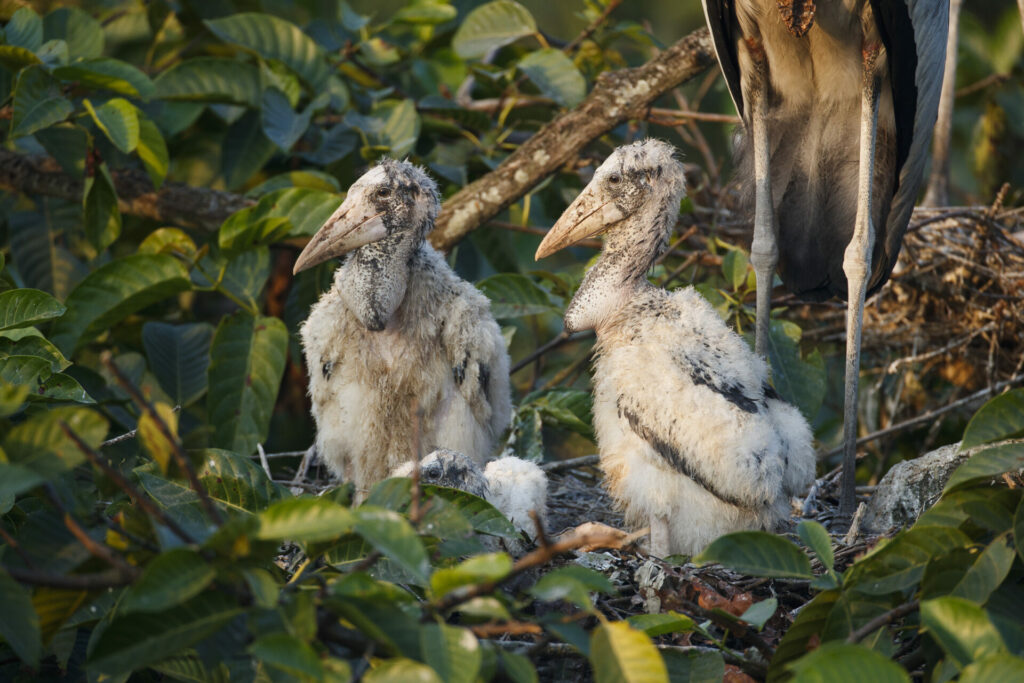
Purnima was keen to acknowledge other female rangers and her Hargila Army saying: ‘My acceptance of this award and honour would not be complete without acknowledging the ground breaking work by courageous women rangers and eco-guards from all over the world. Bringing women to the forefront in conservation movements can create miracles as our Hargila Army has done. I hope we can work together towards more gender equity along with environmental sustainability. There are many challenges still and we are determined to face them and win through.’
Adventurer and conservationist Holly, whose work has been praised by Sir David Attenborough and who also created World Female Ranger Week, has identified more than 5500 female rangers around the world – less than 11 per cent of the entire global wildlife ranger workforce.
But, as she points out, women are natural communicators, protectors and invest their earned income in their families, and so bringing gender equity into the workforce enhances community conservation efforts and relationships.
The pandemic crippled tourism and funding globally for conservation projects, leaving some species even more vulnerable. ‘So, the often-challenging work of rangers is paramount right now,’ Holly says. ‘Day and night, female rangers around the world patrol wilderness areas, monitor wildlife, seize snares, work with communities, battle social stigma and, in some cases, arrest poachers, all to save iconic species from extinction.’
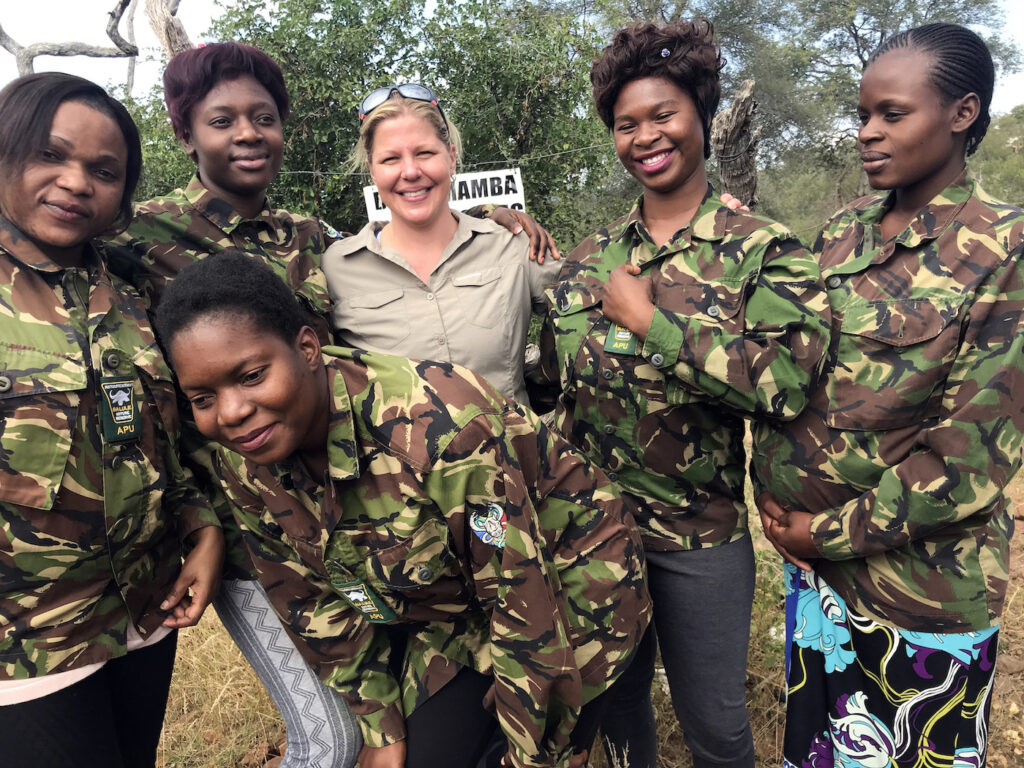
Holly was voted ‘the most innovative woman in non-profit’ in 2021, and is the first woman to skydive Everest and has summited Everest. Through her adventures, she has fundraised over £400K. She founded ‘How Many Elephants’ in 2013 while studying for a Masters in Sustainable Design.










